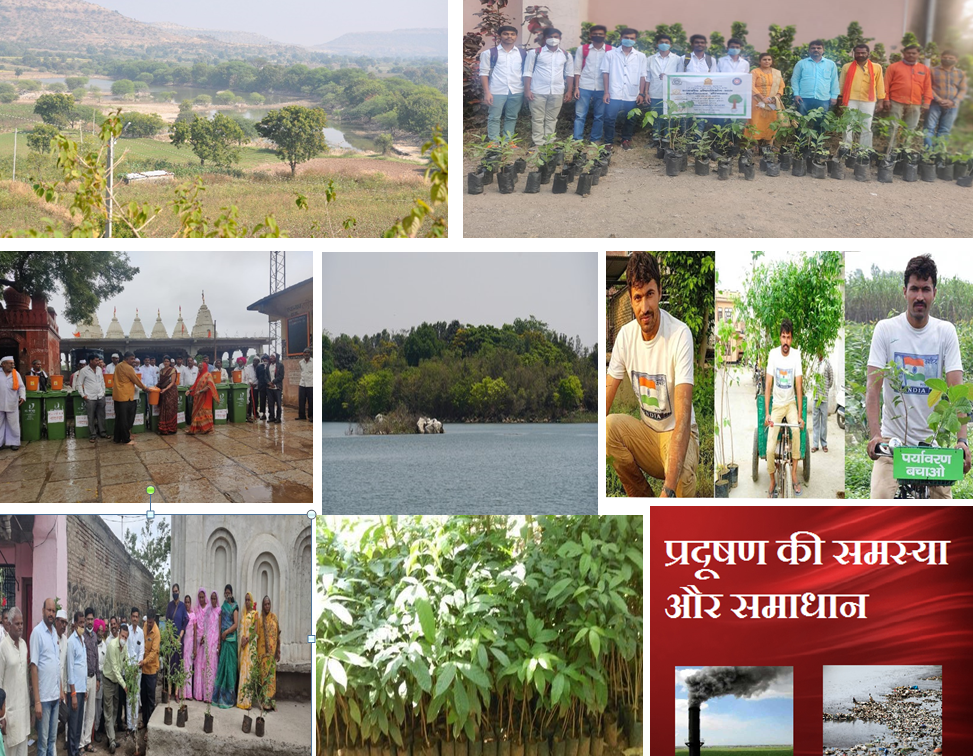MENU > Conservation Of Environment And Natural Resources
The Paradigm Shift from Unsustainable to Sustainable Development
⦿ The rapid industrialization process of the 20th century, driven by the pursuit of economic growth and modernization, was accompanied by an unabated exploitation of natural resources. This unsustainable approach to development, focused solely on immediate benefits, led to severe environmental degradation and depletion of natural resources, jeopardizing the very foundations of human well-being.
⦿ As environmental sciences gained prominence, their ability to predict the irreversible loss of natural resources exposed the stark consequences of this unsustainable paradigm. The realization that environmental degradation was not a distant threat but an immediate and pressing concern shook the world's perception of 'development'.
⦿ In response to this growing awareness, the concept of 'sustainable development' emerged as a more holistic and ethical approach to balancing economic growth with environmental protection. Sustainable development recognizes that human well-being is inextricably linked to the health of the planet and emphasizes the need to manage resources responsibly for the benefit of present and future generations.
⦿ India's Evolving Approach to Environmental Protection
India, a nation with a rich cultural heritage and deep connection to its natural resources, has undergone a significant shift in its approach to environmental protection. While the country's early development efforts prioritized economic growth over environmental considerations, growing environmental awareness and the recognition of the interconnectedness of environmental degradation and human well-being prompted a change in trajectory.
⦿ In 1972, India played a pivotal role in the formation of the United Nations Conference on the Human Environment in Stockholm, marking a turning point in its engagement with environmental issues. This conference highlighted the global nature of environmental challenges and emphasized the need for international cooperation to address them.
⦿ India's commitment to environmental protection was further strengthened in 1987 with the publication of the Brundtland Commission's report, 'Our Common Future,' which popularized the concept of sustainable development. This report resonated deeply with India's leaders and citizens, shaping the country's environmental policies and initiatives.
The Role of Shrikrishna Sanskrutik And Gramin Vikas Sanstha
⦿ In the face of these evolving environmental challenges, Shrikrishna Sanskrutik And Gramin Vikas Sanstha (SSGVS) emerges as a beacon of hope and a reliable tool for promoting sustainable development in India. The organization's mission is to empower communities, particularly in rural areas, to protect their environment, enhance their livelihoods, and foster sustainable practices.
⦿ SSGVS recognizes the importance of raising awareness and educating the public about the harmful effects of environmental intervention. Through its educational initiatives, the organization imparts knowledge about sustainable resource management, waste reduction, and pollution prevention, empowering individuals to make informed decisions and contribute to environmental protection.
⦿ The organization's work extends beyond awareness-raising to concrete action. SSGVS actively supports community-based projects that promote sustainable practices, such as rainwater harvesting, composting, and organic farming. These initiatives not only protect the environment but also enhance the livelihoods of rural communities by providing them with access to clean water, nutritious food, and sustainable income opportunities.
Embedding Sustainable Development in Society
⦿ SSGVS's approach to sustainable development is not limited to environmental protection but extends to social and economic spheres. The organization recognizes the interconnectedness of these aspects and works towards achieving holistic development that benefits all members of the community.
⦿ By promoting gender equality, empowering women, and ensuring access to education and healthcare, SSGVS fosters social equity and strengthens the foundations of sustainable development. The organization also supports economic initiatives that promote rural entrepreneurship, skill development, and market access, enabling communities to thrive economically while preserving their environment.
⦿ Shrikrishna Sanskrutik And Gramin Vikas Sanstha stands as a testament to the transformative power of sustainable development. The organization's unwavering commitment to environmental protection, education, and community empowerment serves as a model for others to emulate. As India continues its journey towards sustainable development, SSGVS remains a beacon of hope, guiding communities towards a future where economic prosperity coexists harmoniously with environmental protection
